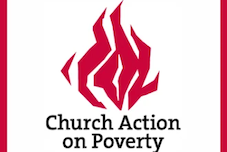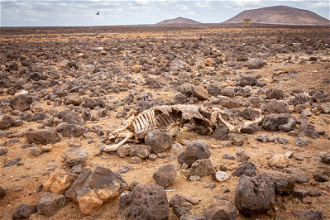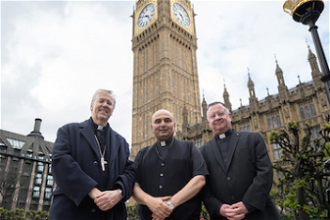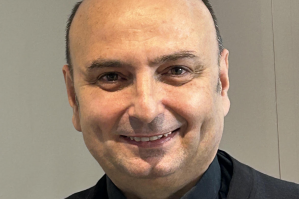CAFOD: Overseas aid cuts are not answer to balancing budgets

Christine Allen
The Chancellor has today confirmed the overseas budget will remain well below the government's election promise, with an increasing amount spent in the UK rather than in the countries that need urgent help.
The UK is now only spending around half on overseas aid compared to what would have been spent, had the government fulfilled their election promise of 0.7%.
In fact, if you look at how much is spent overseas now compared to 2020 it's a reduction of nearly 40%. If the government had delivered on its election promise, then around £14bn would be spent overseas meaning £6bn less is being spent overseas than promised.
In 2020, UK aid was £14.5bn, with only around £1.5bn in the UK.
In 2022 £4bn of the already reduced £12bn, leaves just £8bn for overseas.
This is a mistake, as it means the root causes of global injustice - which contributes to migration - will remain unresolved. It also adversely impacts the UK's soft power, at a time when we need to be building closer relationships with partners around the world.
Low-income and climate vulnerable countries will feel the brunt of the real terms aid cuts most, as drought, floods and rising sea levels continue to devastate communities around the world.
Not only will this approach fail to address global injustice, but it also represents the UK breaking its promise to the world.
We promised to be a world leader on aid, we promised to stand shoulder to shoulder with the most vulnerable, we promised to address climate change, instead we are turning our backs on those who need our support more than ever before.
Instead of seeking to make budget savings on the backs of the most vulnerable, CAFOD is calling for the government to scrap the tax relief for investment in oil and gas production. This only makes us more dependent on oil and gas. The money should be spent instead on investment in renewables at home and abroad.
CAFOD's Chief Executive, Christine Allen said: "These are difficult times for everyone which means difficult decisions must be made. But the answer cannot be to balance the budget on the backs of the most vulnerable.
"The UK government is spending just half on aid overseas compared to their previous promises, yet the number of global crises continues to rise.
"By spending so much of the overseas aid budget in the UK, we are just robbing Peter to pay Paul. This approach fails to tackle the root causes of global injustice - which contributes to migration - and it's a mistake we will all pay for further down the line. The UK can and must do better."
Further figures:
In 2021, the UK government broke its promise to spend 0.7% of national income on overseas aid (known as official development assistance - ODA). The government instead said it will cap aid spending at 0.5% for at least three years. 0.5% is around £11bn, whereas 0.7% would be around £15.4bn in 2022.
There has been an overspend of this cap, putting aid to around 0.55% (£12bn) in 2022. However, £4bn is believed to be spent in the UK this year, which is more than on direct humanitarian help for countries overseas.
This leaves around £8bn of UK aid which can be spent outside of the UK's borders - through direct and indirect support to poor and climate vulnerable countries. This £8bn is barely half of the £15.4bn that would be available if the government kept its promise of aid spending at 0.7% GNI and spent all its aid outside the UK.
UK aid spent on in-country refugee costs has increased from less than 1% of the aid budget in 2009-2013 to 7.5% in 2021 and is likely to reach 25% in 2022.
The government has no plans to return to the 0.7% target, nor will they stop the Home Office using so much of the budget domestically.





















